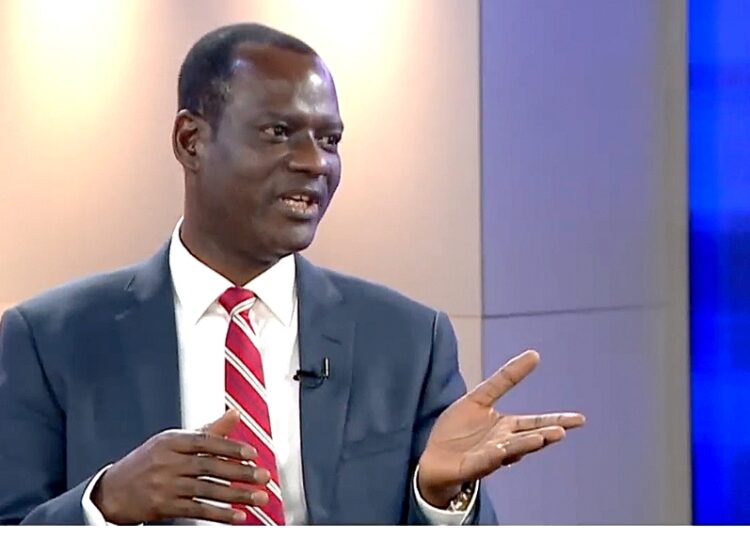My Wife Held Daily Vigils For Me During Tax Bill Controversy – Oyedele
The presidential tax committee chairman urged Nigerians to make it easy for public officials to do their assignments.
Chairman of Presidential Committee on Tax Policy and Fiscal Reforms, Taiwo Oyedele, on Channels Television’s Politics Today programme on June 26, 2025
The Chairman of the Presidential Committee on Fiscal Policy and Tax Reforms, Taiwo Oyedele, says the controversy that initially enveloped the tax reforms introduced by his committee had an emotional impact on him and his family.
“The biggest sacrifice turns out to be the emotional impact, particularly on my family,” the former tax leader at PriceWaterhouseCoopers (PwC) said on Channels Television’s Politics Today on Thursday, a few hours after President Bola Tinubu assented to four new tax bills.
According to him, his wife held daily vigils for him at the height of the controversy.
“At the height of it, there were people who would cook up stories on blogs, and in newspapers, and it took a toll on my family.
“My wife, for example, was doing night vigils every night and struggled to stay awake the following day.
“Thank God my kids are still too young. So, they don’t know what I am going through but it’s been tough, it’s a big sacrifice,” he said.
Oyedele, who was appointed by the president to chair the tax committee in July 2023, urged Nigerians to make it easy for public officials to do their assignments.
“I think it’s important to make the point that if Nigerians truly want a better country, they should not discourage honest people who want to help.
“It’s already a tough decision to try and work in the public sector. Making it harder than it ought to be is not helpful,” he said.
The tax boss, however, said the sacrifice he paid was worth it, expressing delight that the new tax laws would transform the tax landscape in Nigeria.
“In terms of the financial sacrifices, maybe that is now even smaller looking back. The amount the government was going to pay was going to be ridiculous.
So, I said: just cover the cost of what you asked me to do; you don’t need to pay me a salary. And I’m also fine with that. It’s a small sacrifice in the context that this can make,” he said.
He said that the objectives of the new laws, which would take effect from January 2026, were not intended to increase taxes but to stimulate economic activity in the country and track tax evaders.
Oyedele stated that the new laws would also protect businesses and ensure that the government doesn’t tax poverty, adding that the new laws are efficiency-driven, growth-focused, and people-centric.
Before it was passed and assented to, the tax was enveloped in widespread controversy and sparked scathing criticisms and stiff opposition from many including some governors who believed that some states wouldn’t be able to pay staff salaries if some sections of the bills make it into law.
However, the Presidency and the National Assembly said stakeholders had been engaged across the country and the fears of the governors had been allayed.
Tinubu on Thursday signed into law the four new tax bills recently passed by the National Assembly, describing the new laws as pivotal to the success of the administration’s reforms and the country’s prosperity.
The bills are the Nigeria Tax Bill (Ease of Doing Business), which aims to consolidate Nigeria’s fragmented tax laws into a harmonised statute; the Nigeria Tax Administration Bill, to establish a uniform legal and operational framework for tax administration across federal, state, and local governments.
Others are the Nigeria Revenue Service (Establishment) Bill, which repeals the current Federal Inland Revenue Service Act and creates the Nigeria Revenue Service (NRS); and the Joint Revenue Board (Establishment) Bill.



